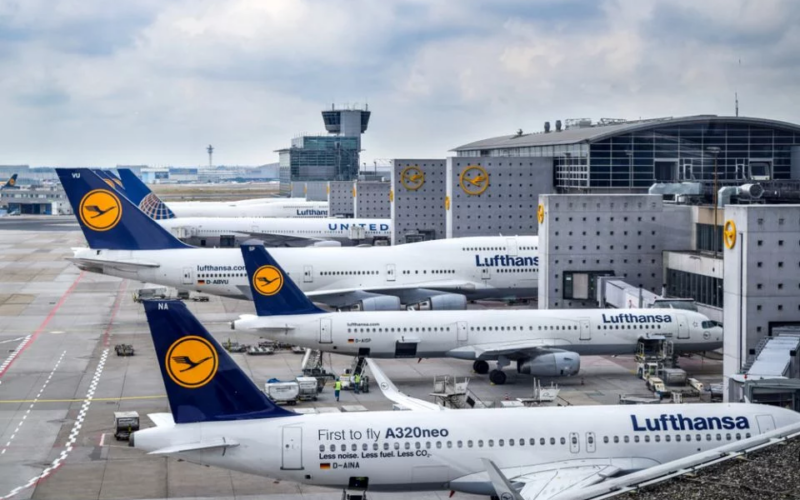Lufthansa Group announced on Tuesday the implementation of an “environmental cost surcharge” on ticket prices to address increasing expenses tied to environmental regulations. The surcharge, which ranges from 1 euro to 72 euros ($77), will apply to most flights departing from Europe and will be effective from June 26 for flights starting January 1, 2025.
“The surcharge is intended to cover part of the steadily rising additional costs due to regulatory environmental requirements,” the company stated. The charges reflect the costs associated with compliance with regulations from the European Union and the International Civil Aviation Organization.
The surcharge will be added to all flights sold and operated by Lufthansa Group, encompassing Lufthansa, Eurowings, Swiss, Edelweiss Air, and Austrian Airlines. It applies to flights departing from the 27 EU member states, as well as the U.K., Norway, and Switzerland. Customers will see the surcharge amount during the booking process, with the fee varying based on the flight route and fare.
Lufthansa cited several regulatory measures contributing to the additional costs:
Sustainable Aviation Fuel (SAF) Quotas: The EU’s impending quotas on SAF, effective from 2025, mandate a gradual increase in the use of alternative fuels such as waste oil, fats, and non-food crops, which are critical for achieving net-zero emissions by 2050. These quotas are expected to substantially raise operational costs.
Emissions Trading Systems: The EU, Switzerland, and the U.K. have emissions trading systems that set limits on permissible emissions, with decreasing caps to reduce overall emissions over time. These systems necessitate additional financial outlays for compliance.
International Civil Aviation Organization (ICAO) Climate Agreement: Lufthansa also pointed to the ICAO’s global agreement aimed at controlling aviation emissions as a factor in its rising environmental costs.
Lufthansa emphasized its commitment to sustainability, noting significant investments in technology to enhance aviation’s environmental performance and support climate research. However, the company highlighted that it cannot shoulder the escalating costs from regulatory requirements alone, thus necessitating the surcharge to offset some of the expected financial burdens.
The move aligns with broader industry efforts to balance economic viability with environmental responsibilities amidst tightening regulations and growing pressures to mitigate climate change impacts.








